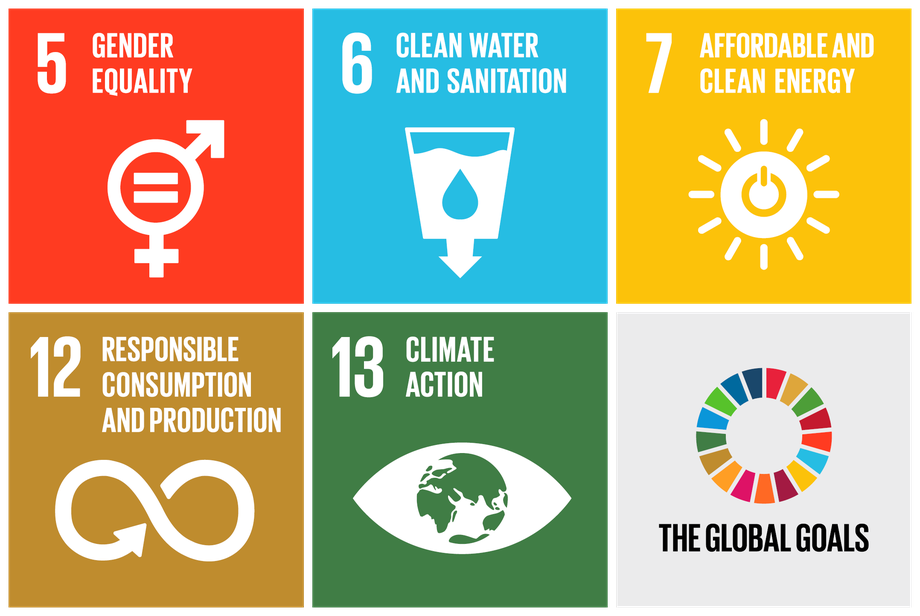If there is one thing we have learned from the pandemic that still engulfs the world, it is that we can change our habits, and quickly. In an emergency, we can turn our lives around; many workplaces that buzzed with life are now empty, and we have rid ourselves of a number of automatic habits.
Menacing and often heart-breaking as the pandemic has been, our reactions to it have shown that we have access to all kinds of strategies. We can start to define what is and is not possible more narrowly.
Climate crisis still with us
One of the greatest challenges facing us at the start of the year is with us still. The climate crisis still looms and it is imperative that we make use of our experience in making fundamental changes, brought on by the pandemic, to come to grips with that challenge. There was one important change at the beginning of last year: We saw the successful scientific, developmental, and innovative Carbfix project reach maturity and become an independent subsidiary of Reykjavik Energy Group. The aim of the change is to give other companies the opportunity to make business-based use of the Carbfix capture and mineralisation method. It was largely Carbfix that enabled Reykjavik Energy Group to reduce its carbon footprint by dozens of percentage points from the benchmark year 2015. In addition, the interest Carbfix has aroused, both locally and internationally has highlighted both the climate crisis and, no less importantly, the fact that there are actually many ways to tackle the problem. Carbon neutrality is fundamental in sustainable business operations, and is indeed one of the main objectives of Reykjavik Energy Group.
The social roles of Reykjavik Energy Group are clearly stated by its owners in the Owners Strategy and the Partnership Agreement. They are since assigned to the appropriate subsidiaries, as the law demands.
Emphasis on five SDGs
In its Policy Statement on social responsibility, Reykjavik Energy Group's Board of Directors has adopted as guidelines the United Nation's Sustainable Development Goals (SDGs). Five SDGs are prioritised. Two align themselves with the Group's core operations, i.e. Clean Water and Sanitation and Affordable and Clean Energy, while the other three i.e. Climate Action, Responsible Consumption and Production, and Gender Equality rather refer to how we want to tend to our role in a larger context. In this Annual Report, the performance of the Group is reviewed against the above mentioned, and indeed additional, SDGs. In 2020, Carbfix and ON Power also decided which SDGs they would prioritise. These goals are being adopted into their business policy and preparations are under way to include appropriate SDGs in other subsidiaries.

Reykjavik Energy Group prioritises five Sustainable Development Goals in its operations.
Online meetings of the Board
Inevitably, COVID-19 affected the way the Board of Directors carried out its duties during the year. Most Board meetings were conducted via video conferences, and the total number of Board meetings increased. Only two Board meetings were conducted in the traditional way in early 2020, nine meetings via video conference followed, and three meetings were in mixed format. Attendance at the meetings was excellent, even better than usual. Possibly, the changed format of the Board meetings made attending easier for some. In addition to formal meetings, the Board held a workshop at the Hellisheidi Geothermal Power Plant in August. The Board's agenda for the year was followed, and in the course of the year they made assessments of their own performance and that of the CEO. In 2020 the Board was unanimous in deciding to invite Reykjavik Energy Group Employee Society (STOR) a non-voting seat on the Board. The offer was accepted and the chairperson of the society was nominated to the seat.
The holders of owners' authority of Reykjavik Energy Group – the mayors of Reykjavik, Akranes and Borgarbyggd – attended three meetings during 2020. The annual general meeting was held in April, a regular owners' meeting with emphasis on finance in November, and in March a special owners' meeting was held, where the owners, the Board, and the Managing Directors at Reykjavik Energy Group all convened regarding COVID-19 challenges.
In recent years, the Managing Directors, the Board, and the owners of Reykjavik Energy Group, have jointly managed the largest tasks in the Group's operating range. Among those are The Plan, the Group's financial resurrection plan during the years 2011-2016, and now we must deal with the effects of the coronavirus. Already in the first quarter of 2020, when it was clear that we were heading for serious damage from COVID-19, these partners worked well to find ways in which the strength of the Group could be used to offer resistance. The outcome was that dividend payment in 2020 was increased, and various and wide-spread investment projects were expedited. This was in everyone's interest, since more people get jobs, the revenues of the municipalities are not as badly affected by unemployment, and there is increased likelihood of receiving favourable tenders for projects.
Thanks to employees and Management
The year 2020 was hopefully unique. However, it was also a unique privilege to work with the Managing Directors and employees of Reykjavik Energy Group, to ensure we continue to offer its basic services in very challenging times. We suffered no breakdown of service due to the pandemic. This demonstrates that even though Reykjavik Energy Group is indeed a large and trustworthy company, its employees and Managing Directors are endowed with both tact and flexibility, which has served our customers well during this year without precedent.
